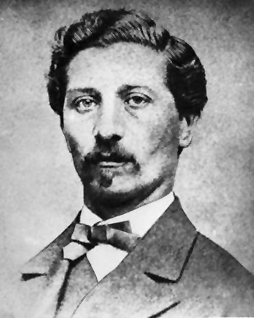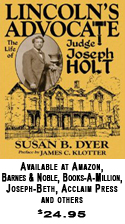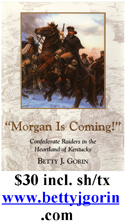|
Kaskel’s refusal, plea before Lincoln
enabled Paducah Jews to return
Cesar Kaskel left Paducah with the other Jews, but he refused to accept the Civil War decision to expel his people from the Western Kentucky city.
On Dec. 17, 1862, Gen. U.S. Grant ordered Paducah’s Jews to be “expelled within 24 hours of this order.” The edict affected 30 families and about 100 individuals. Grant, who was attending to matters further south, issued the order following a request by Union Gen. Eleazer A. Paine who claimed the Jewish population was responsible for supporting bands of roving guerrillas that were harassing Federal troops throughout the area.
Kaskel, a 30-year-old merchant, his brother – J.W. Kaskel – and a jeweler identified as D. Wolfe, decided they would fight the “unfair conviction” all the way to Washington. And, Cesar Kaskel did just that.
Initially, a telegram was sent to President Abraham Lincoln that stated, “this inhuman order, the carrying out of which would be the greatest violation of the Constitution and our rights as citizens, would place us, besides a large number of Jewish families in this town, as outlaws before the world.”
Cesar Kaskel followed up the wire by traveling to Washington and appealing personally to Lincoln to have the order overturned. The President did so, less than three weeks after Grant’s order.
Paducah was invaded by Union troops under the command of Gen. Grant in September 1861 and was occupied by the Federals for the next four years. Following the initial occupation, Grant left town and gave command responsibility to Gen. Paine.
Paducah residents felt that Paine disliked anyone who did not agree with his views and was believed to be highly prejudiced in many matters. According to local lore, the general vented much of his wrath upon the Jewish population, many of whom had very successful businesses that had employed three generations of their families. Residents, apparently, were not surprised that Paine decided to rid Paducah of the Jewish presence.
Families were given less than a day to prepare for deportation, and, they were given no hearings. Many of the Jewish families were regarded as prominent citizens and were identified as being staunchly pro-Union. However, Union troops reportedly were not gentle in getting everyone aboard departing vessels. It was reported that a small baby was thrown to its parents as their boat was departing from the shore.
Gen. Grant was given credit for recognizing that his order of expulsion had been a serious mistake and he apologized. As president, Grant was said to have “gone out of his way” to appoint Jews to high-level positions and to speak out against anti-Semetic discrimination.
Paine, who had been a civilian lawyer and politician, resigned his commission in April 1862 and engaged in business following the war.
After Lincoln overturned the expulsion order, Kaskel assembled the Jewish refugees in Cincinnati, rented a boat and landed at the foot of Broadway in Paducah. They were met by Union troops and a provost marshal who attempted to prevent them from coming ashore.
The marshal demanded to know upon whose orders they had returned.
“By the order of the President of the United States,” Kaskel replied as he assisted his friends ashore.
|














